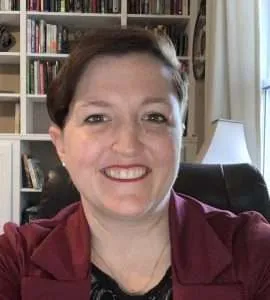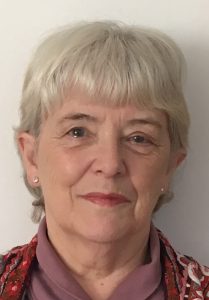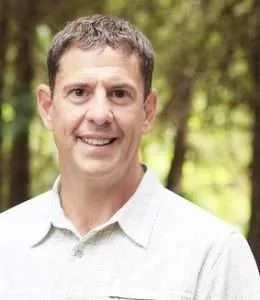Editorial Note:
This profile of Chloe E. Bird is brought to you through a joint collaboration between Applied Worldwide and the American Sociological Association’s section on Sociological Practice and Public Sociology. Thank you to ASA and all those who made valuable contributions to the Profiles in Applied & Clinical Sociology series.
This profile is presented as part of a larger project with the intentions of: 1) providing students with examples of applied sociology, 2) providing market value to sociological skills and services, and 3) promoting the work of individual sociological practitioners and organizations. Enjoy our full directory of profiles in applied and clinical sociology.
Chloe E. Bird, PhD, FAAAS, FAAHB
Chloe E. Bird, a senior sociologist at the RAND corporation, began her path to sociological practice with her BA in sociology from Oberlin College and Conservatory. She then continued her studies in sociology to earn her MA and PhD in sociology from the University of Illinois Urbana-Champaign. After graduating with her PhD, Dr. Bird took a postdoctoral position in Society and Health at The Health Institute, a joint program of New England Medical Center and Harvard School of Public Health.
The majority of Dr. Bird’s work is “on sex and gender differences in health care. This includes work on social determinants of health, barriers to health care and health care utilization, quality of care, and outcomes of care. [She also studies] women’s representation as subjects/participants in health research and the impact of their under representation and of generalization beyond the data to women in general and to demographic subgroups of women (e.g. to older women or underrepresented minorities).”
As a sociologist at RAND, Dr. Bird helps contracted organizations answer specific research questions and examine problems. Examples of such work provided by Dr. Bird include “assessing gender differences in routine aspects of quality of care which we have done for the Veterans Administration, health care plans, and the Centers for Medicare and Medicaid Services, and our work designing a microsimulation to assess the impact of increasing NIH funding for research on women’s health in specific disease/therapeutic areas which we are conducting for and with Women’s Health Access Matters (WHAM).” When we asked about future employment opportunties for aspiring sociologists at RAND, Dr. Bird told us the organization looks for “strong methodological skills—which can be quantitative, qualitative or a combination—excellent writing skills and ideally grant writing experience and interest or experience in writing for diverse audiences, interest in working on multiple interdisciplinary teams, and strong presentation skills.”
In 2021 Dr. Bird was awarded the American Sociological Association’s Distinguished Career Award for the Practice of Sociology. This award recognizes ASA members’ outstanding contributions to sociological practice. Regarding the award, Dr. Bird told us,
The future of the discipline is in work that can and does have an impact. I contend that work derives from the connections between more academic and applied sociology. The mechanisms that we build to create and maintain communication between the two supports the discipline as a whole and expands and accelerates the capacity of sociology to make a difference.
She also shared the following statement as a recipient of the award:
I am honored that the American Sociological Association is recognizing my work on women’s health and healthcare, including my efforts to catalyze breakthrough science through encouraging researchers to ask better questions about sex/gender differences in health and health care, with this prestigious award. The award, established in 1986, is notable in that it points to a long-standing commitment on the part of the ASA to recognizing that sociologists working across a wide array of organizations and settings contribute to both to human welfare and to the discipline. Both the discipline and all sociologists also benefit from the ASA’s growing connections with applied sociologists and their research.
You can read a full write-up on Dr. Bird’s work that earned her the award here. Continue reading below for our full interview with Dr. Bird and connect with her on Twitter or LinkedIn.
Using Sociology in Practice
How did you establish yourself as an applied or clinical sociologist?
As a college student, I believed that social science research was necessary to inform public policy and that without strong sociological work, policies were unlikely to effectively address the causes and consequences of social problems. I planned to be a university professor. My post-doctoral training at Harvard School of Public Health and my experiences on the faculty at Brown Medical School exposed me to applied interdisciplinary research that could have an impact in policy and practice. Over time, my interest in impacting health and health care evolved as I recognized the range of decision makers to whom we do not normally address our work. This lead both to my book with Patricia Rieker—Gender and Health: The Effects of Constrained Choices and Social Policies—and to my interest in working on projects aimed to inform decision makers of the health impact of policies and practices. As a result, I work on projects aimed at informing policy decisions. Some of my projects are for organizations and decision makers who shape relevant policies and practices; others include products and dissemination plans designed to speak to relevant decision makers
In general, how do you use sociology in practice?
I approach problems sociologically, looking at who benefits and how to understand a problem from the perspectives of different stakeholders. Understanding how and why stakeholders view a given problem differently given their perspective provides an opening. In many cases it is a matter of communicating why a problem is relevant to them, how it is actionable and the benefits of action versus the costs of the status quo.
How do you use sociological research methods in practice?
I uses sociological methods in a myriad of ways. At first it involved demonstrating where women are underrepresented and that inequities have economic and health impacts. In much of my work, I have examined geographic variation in inequalities to demonstrate that the gaps vary as an indication that the problems are not innate (e.g., that women are less likely to have well-controlled cardiovascular risk factors). However, I’ve also used place based analyses to demonstrate that factors beyond the control of individuals shape their health behaviors and the impacts of those behaviors or that health literacy can be understood as a community resource that can augment an individual’s level of health literacy and access to quality health care. In much of my work, I use mapping or graphing of results to make them accessible to people who do not produce odds ratios for a living. I also translate the results into metrics that are meaningful to the audience. For example, physicians recognize the benefit of a statin in reducing cardiovascular risk. Describing the impact of disparities in screening or routine assessment on the scale of the impact of statins can make the findings real. Similarly, I use sociological methods in communicating why a given gender or racial/ethnic disparity at a population level is meaningful even if it is smaller than what would be considered clinically meaningful in an individual.
How do you use sociological theory in practice?
I use sociological theory to assess and articulate how and why people act differently and at times in ways that do not maximize their health even when they value their health. I also use sociological thinking to highlight and address false premises. For example, when the lack of research showing sex/gender differences in effectiveness of a particular type of medical intervention is used as a reason not to assess whether there are such differences, I look at whether there is evidence of little or no difference, or if there is no evidence because the question has not been studied. I point to where there is evidence-based knowledge and policy versus where there is agreement favoring the status quo, but there are systematic gaps in the research and evidence, for example on whether research findings are similar for men and women patients. I use sociological theory to inform a critique of what is known and the problem of assuming at a given method (e.g. randomized clinical trials or systematic reviews) produces a generalizable answer.
Lessons for Future Practitioners
What types of courses should undergraduate students take in preparation for a career similar to yours?
Research methods aimed at conducting various types of data collection and analyses. Writing courses aimed at developing a capacity to communicate in multiple formats in addition to a research paper. Policy courses relevant to government and to policy in the area of research interest such as health care or education.
What types of courses should graduate students take in preparation for a career similar to yours?
More of the above and if possible an applied course working collectively to assess a problem for a client such as the city or community or a social service organization. Also, consider taking a summer or other position working in a research center at their institution and contributing to work outside of sociology. Understanding their different assumptions and language around research questions, methods, findings, and implications can open your thinking. Take some courses from the fields that train those whom you are most likely to work with or to whom your work would speak. Look also for courses by sociologists based in other departments or schools within your university such as business, education, medical or other health profession, law, government. Those courses are typically more applied and bring together sociologic thinking and a different literature, set of problems and concerns than most courses taught within sociology.
What types of experiences should undergraduate students seek in preparation for a career similar to yours?
Opportunities to engage in different kinds of research including data collection and analysis. Seek out professors who write for audiences beyond academic journals. Look at what kinds of data would be useful to organizations you are part of or are interested in participating in or working for. Learning to write a commentary or op-ed that gets people to think, not just to agree or disagree, but to consider a problem or issue from another perspective.
What types of experiences should graduate students seek in preparation for a career similar to yours?
Working on interdisciplinary teams. Writing for nonacademic audiences both in terms of public facing pieces such as op-eds or blog posts and work speaking to groups and organizations. Write proposals and learn to pitch an idea. Much of professional life is pitching an idea whether it is for a course, a study, an intervention, or a service. Look for opportunities to work outside the academy for a summer or in another school at your university. Also seek opportunities to develop public speaking skills and to speak to different audiences.
More generally, what are the best outlets to learn more about the work you do as an applied or clinical sociologist?
You can find links to much of my work on my page on the RAND website. This includes academic articles, reports, academic commentaries and blog posts as well as some talks. One talk recorded at NIH on “Advancing Understanding of Sex and Gender Influences on Health and Disease” is not on my RAND page. It is available at here.
How would you describe the daily life of an applied or clinical sociologist?
Like most researchers, much of my time is reading, writing and analysis. In most of my work, I use existing data whether from panel or other studies or data bases or medical records. I spend a considerable amount of time looking for opportunities to fund my work and writing proposals for grants or contracts and arranging data access and associated IRB (institutional review board) approvals. I have project team meetings and meetings with clients and with other decision makers. I review articles for journals and for other researchers. There is a lot of time spent translating work to different audiences or learning what a different journal requires or client needs in terms of reports, research briefs, and prepared presentations.
What advice do you have for aspiring applied and clinical sociologists?
Pick work that inspires you. Doing work that you know can and does make a difference is very rewarding. Allocate some time to writing about your applied and clinical work for sociological audiences and share what fits with sociological theory and what’s missing or incomplete. Start writing some public facing pieces early in your career so that your name is associated with your work and people can find you. An occasional academic commentary or op-ed can make the case for why particular types of work are needed and how they can contribute. You never get 800-1000 words to step back and make the case for your work in a journal article or a grant proposal. These pieces can open many conversations with potential clients, funders, or colleagues. Participate in an applied sociology group such as the ASA Section on Sociological Practice and Public Sociology, where you can learn about the range of types of work sociologists are doing, how their work life is organized, and how they get paid.







